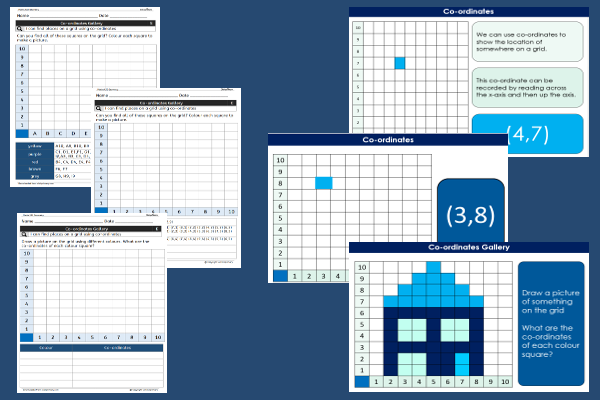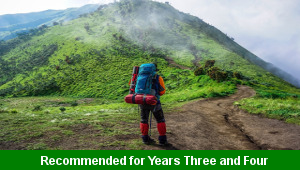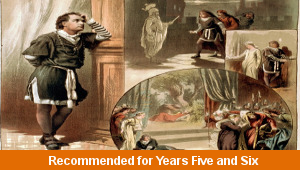Co-ordinates Gallery

This maths teaching pack for Key Stage Two gets the children to investigate how to select and record sets of matching co-ordinates that can be used to build some example pictures on a grid showing the first quadrant.
The class can identify and explain the correct ways of recording the selected co-ordinates correctly using brackets and commas to create some different picture shapes.
Download this teaching pack including classroom activities and an interactive presentation to investigate how to select and record sets of matching co-ordinates that can be used to build some example pictures on a grid showing the first quadrant
Activities in this teaching pack include a differentiated set of worksheets to build some example pictures by using matching sets of co-ordinates on a grid in the first quadrant and a template to list the co-ordinates that match the position of locations on a picture illustration.
The interactive presentation gets the children to explore how to select and record the matching sets of co-ordinates to build pictures on a grid in the first quadrant.
This lesson is part of a maths scheme of work to get the children to explain and model how to record co-ordinates in the first quadrant to indicate the locations of different locations and points. There are teaching activities for shared learning, differentiated worksheets to support independent learning and interactive presentations to introduce concepts and key skills.
-

3D Shape Labels
Identify and record how to label models and illustrations of some different 3D shapes to indicate their special properties
-

Adventure Plays
practise composing and performing play scripts using the correct structure and format to illustrate adventures to different locations
-

Shakespeare Plays
Investigate the structure and format of different scenes extracted from plays by William Shakespeare to use for drama performances
-

Greek Myths
Practise composing narrative stories to illustrate the structure and format of myths based on culture and traditions from Ancient Greece
